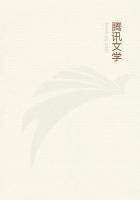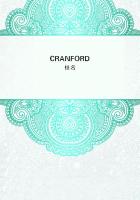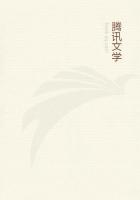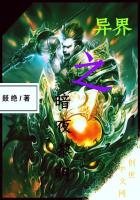This feat drew the attention of the Hanoverian Government, and of Dr.
Olbers, the astronomer, to the young mathematician. But some time elapsed before he was fitted with a suitable appointment. The battle of Austerlitz had brought the country into danger, and the Duke of Braunschweig was entrusted with a mission from Berlin to the Court of St. Petersburg. The fame of Gauss had travelled there, but the duke resisted all attempts to bring or entice him to the university of that place. On his return home, however, he raised the salary of Gauss.
At the beginning of October 1806, the armies of Napoleon were moving towards the Saale, and ere the middle of the month the battles of Auerstadt and Jena were fought and lost. Duke Charles Ferdinand was mortally wounded, and taken back to Braunschweig. A deputation waited on the offended Emperor at Halle, and begged him to allow the aged duke to die in his own house. They were brutally denied by the Emperor, and returned to Braunschweig to try and save the unhappy duke from imprisonment. One evening in the late autumn, Gauss, who lived in the Steinweg (or Causeway), saw an invalid carriage drive slowly out of the castle garden towards the Wendenthor. It contained the wounded duke on his way to Altona, where he died on November 10, 1806, in a small house at Ottensen, 'You will take care,' wrote Zach to Gauss, in 1803, 'that his great name shall also be written on the firmament.'
For a year and a half after the death of the duke Gauss continued in Braunschweig, but his small allowance, and the absence of scientific company made a change desirable. Through Olbers and Heeren he received a call to the directorate of Gottingen University in 1807, and at once accepted it. He took a house near the chemical laboratory, to which he brought his wife and family. The building of the observatory, delayed for want of funds, was finished in 1816, and a year or two later it was fully equipped with instruments.
In 1819, Gauss measured a degree of latitude between Gottingen and Altona. In geodesy he invented the heliotrope, by which the sunlight reflected from a mirror is used as a "sight" for the theodolite at a great distance. Through Professor William Weber he was introduced to the science of electro-magnetism, and they devised an experimental telegraph, chiefly for sending time signals, between the Observatory and the Physical Cabinet of the University. The mirror receiving instrument employed was the heavy prototype of the delicate reflecting galvanometer of Sir William Thomson. In 1834 messages were transmitted through the line in presence of H.R.H. the Duke of Cambridge; but it was hardly fitted for general use. In 1883 (?) he published an absolute system of magnetic measurements.
On July 16, 1849, the jubilee of Gauss was celebrated at the University;the famous Jacobi, Miller of Cambridge, and others, taking part in it.
After this he completed several works already begun, read a great deal of German and foreign literature, and visited the Museum daily between eleven and one o'clock.
In the winters of 1854-5 Gauss complained of his declining health, and on the morning of February 23, 1855, about five minutes past one o'clock, he breathed his last. He was laid on a bed of laurels, and buried by his friends. A granite pillar marks his resting-place at Gottingen.
II. WILLIAM EDWARD WEBER.
WILLIAM EDWARD WEBER was born on October 24, 1804, at Wittenberg, where his father, Michael Weber, was professor of theology. William was the second of three brothers, all of whom were distinguished by an aptitude for the study of science. After the dissolution of the University of Wittenberg his father was transferred to Halle in 1815. William had received his first lessons from his father, but was now sent to the Orphan Asylum and Grammar School at Halle. After that he entered the University, and devoted himself to natural philosophy. He distinguished himself so much in his classes, and by original work, that after taking his degree of Doctor and becoming a Privat-Docent he was appointed Professor Extraordinary of natural philosophy at Halle.
In 1831, on the recommendation of Gauss, he was called to Gottingen as professor of physics, although but twenty-seven years of age. His lectures were interesting, instructive, and suggestive. Weber thought that, in order to thoroughly understand physics and apply it to daily life, mere lectures, though illustrated by experiments, were insufficient, and he encouraged his students to experiment themselves, free of charge, in the college laboratory. As a student of twenty years he, with his brother, Ernest Henry Weber, Professor of Anatomy at Leipsic, had written a book on the 'Wave Theory and Fluidity,' which brought its authors a considerable reputation. Acoustics was a favourite science of his, and he published numerous papers upon it in Poggendorff's ANNALEN, Schweigger's JAHRBUCHER FUR CHEMIE UND PHYSIC, and the musical journal CAECILIA. The 'mechanism of walking in mankind'
was another study, undertaken in conjunction with his younger brother, Edward Weber. These important investigations were published between the years 1825 and 1838.
Displaced by the Hanoverian Government for his liberal opinions in politics Weber travelled for a time, visiting England, among other countries, and became professor of physics in Leipsic from 1843 to 1849, when he was reinstalled at Gottingen. One of his most important works was the ATLAS DES ERDMAGNETISMUS, a series of magnetic maps, and it was chiefly through his efforts that magnetic observatories were instituted.
He studied magnetism with Gauss, and in 1864 published his 'Electrodynamic Proportional Measures' containing a system of absolute measurements for electric currents, which forms the basis of those in use. Weber died at Gottingen on June 23, 1891.
III. SIR WILLIAM FOTHERGILL COOKE.















